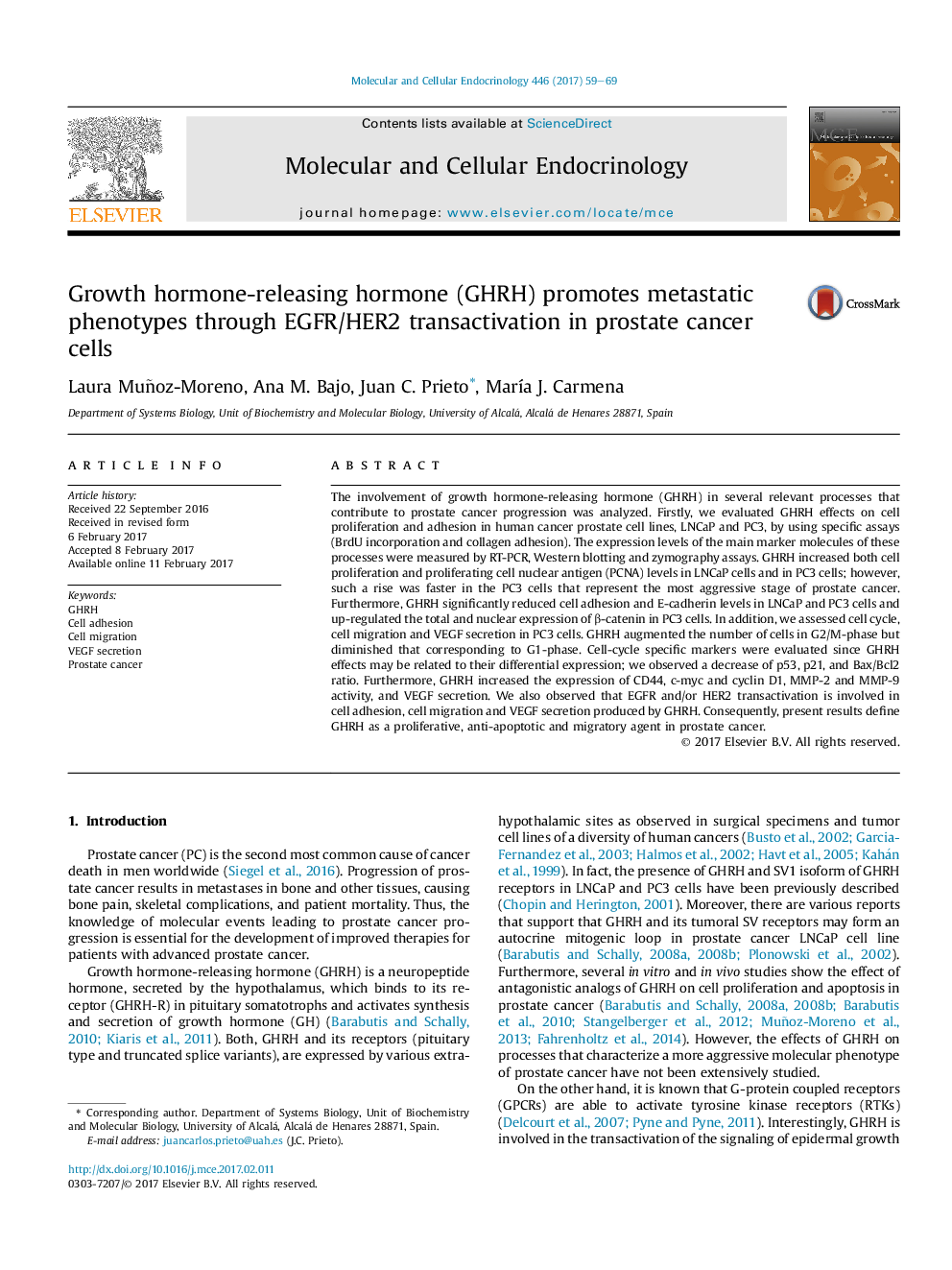| Article ID | Journal | Published Year | Pages | File Type |
|---|---|---|---|---|
| 5534268 | Molecular and Cellular Endocrinology | 2017 | 11 Pages |
â¢GHRH increased cancer cell growth in less (LNCaP) and more aggressive (PC3) cells.â¢GHRH increased the expression of PCNA in LNCaP and, specially, PC3 cells.â¢GHRH decreased p53, p21, and Bax/Bcl2 ratio and increased MMP-2,9 activity.â¢GHRH increased expression of CD44, c-myc and cyclin D1, and VEGF secretion.â¢EGFR/HER2 transactivation mediates GHRH effects in prostate cancer progression.
The involvement of growth hormone-releasing hormone (GHRH) in several relevant processes that contribute to prostate cancer progression was analyzed. Firstly, we evaluated GHRH effects on cell proliferation and adhesion in human cancer prostate cell lines, LNCaP and PC3, by using specific assays (BrdU incorporation and collagen adhesion). The expression levels of the main marker molecules of these processes were measured by RT-PCR, Western blotting and zymography assays. GHRH increased both cell proliferation and proliferating cell nuclear antigen (PCNA) levels in LNCaP cells and in PC3 cells; however, such a rise was faster in the PC3 cells that represent the most aggressive stage of prostate cancer. Furthermore, GHRH significantly reduced cell adhesion and E-cadherin levels in LNCaP and PC3 cells and up-regulated the total and nuclear expression of β-catenin in PC3 cells. In addition, we assessed cell cycle, cell migration and VEGF secretion in PC3 cells. GHRH augmented the number of cells in G2/M-phase but diminished that corresponding to G1-phase. Cell-cycle specific markers were evaluated since GHRH effects may be related to their differential expression; we observed a decrease of p53, p21, and Bax/Bcl2 ratio. Furthermore, GHRH increased the expression of CD44, c-myc and cyclin D1, MMP-2 and MMP-9 activity, and VEGF secretion. We also observed that EGFR and/or HER2 transactivation is involved in cell adhesion, cell migration and VEGF secretion produced by GHRH. Consequently, present results define GHRH as a proliferative, anti-apoptotic and migratory agent in prostate cancer.
